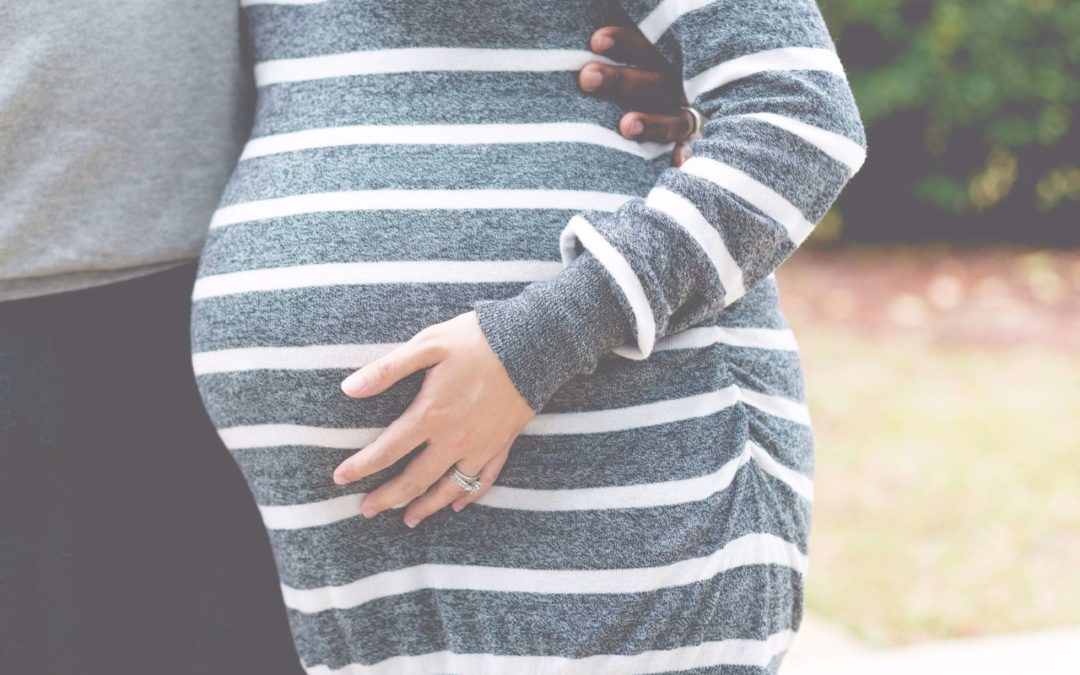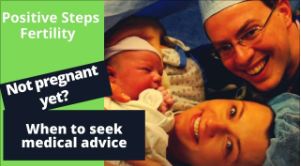Fertility patients naturally have lots of questions about pregnancy and emotions:
– How much does anxiety play into the picture, and can it keep you from getting pregnant?
– Does it matter whether you’re in the mood to conceive?
– Is it okay to be on antidepressants while trying to conceive? Are there risks or benefits?
Pregnancy and Emotions: The Stress of Stress
While these can be tricky questions, the short answer is that, yes, emotions can certainly affect your chances of getting pregnant – but probably not to the degree you think. Take stress. In some cases, stress can actually improve your chances of conception. Couples who are worried about conceiving typically have intercourse more often, which means their odds of becoming pregnant are heightened. In short, emotions fuel behavior, and behavior fuels outcomes.
But the need to have constant sex can be stressful in itself when you’re trying to conceive. Isn’t sex supposed to be fun and happen naturally? When you’re forced to do it night after night, it starts to feel more like a chore than a mutual expression of affection.
If that’s the source of your stress, there’s good news for you. You actually don’t have to have intercourse every single night to improve fertility. For one thing, women can generally only conceive during ovulation, the period when the ovaries release an egg into the fallopian tubes. This 4-5 day window falls about halfway through the menstrual cycle, roughly two weeks before the start of a woman’s period.
But even during ovulation, there’s still no need for intercourse every single night. Once released, sperm cells typically live in the reproductive tract for a full 72 hours without lowering your fertility chances. So even if you drop sexual activity to twice a week, your odds of getting pregnant are about the same.
In truth, the issue of stress and fertility is a complicated question of chicken-and-egg. All the same, studies on the relationship between the two have much to teach us.
For instance, studies of fertility rates during the Nazi holocaust and the period of ethnic cleansing in Angola showed that women still managed to get pregnant. Fertility rates weren’t all that dramatically affected. Yes, some couples understandably took precautions to avoid pregnancy during such bleak times, but the cycle of childbirth went largely unabated.
Second, consider all the species in the wild who manage to reproduce. The stresses they face are generally more life-threatening than our own: predators, extreme weather, the constant need to find food. If stress really did have a determining factor on fertility, then many of these species would have died out ages ago.
You also should remember that emotional response can compound itself. It can become a self-reinforcing mechanism. You’re stressed because you can’t get pregnant, and then you’re stressed about being stressed.
This is clearly a cycle you need to get control of. People who go down this mental pathway are essentially making themselves miserable over nothing. Since stress doesn’t really undermine fertility all that much, you just need to keep trying. If you still can’t conceive after a year of effort, then something other than stress is likely the culprit.
All of that being said, there are a couple of ways stress can affect your fertility. Prolonged stress, for instance, can interrupt a woman’s menstrual cycle. In this instance, conception becomes impossible. When there is no fertility there can be no pregnancy.
Interrupted ovulation is fairly rare, however, where stress is concerned. It’s more likely that a stressed couple will fall into an argument and pull away from one another. While some will certainly reconcile and commence trying again, others may stop having sex altogether. In the absence of intercourse, the chances of a pregnancy occurring plummet to zero.
Rather than letting stress get the best of you, then, it’s important to face your emotions head-on. Keep the lines of communication open with your partner and acknowledge that both of you are anxious about the pregnancy. The best way for a couple to solve any problem is to address it openly.
Do I have to be “in the mood” to get pregnant?
It’s also common to wonder whether you need to be in the mood for pregnancy for it to happen. Banish the thought. The reproductive process essentially has a mind of its own, so actively planning or trying isn’t necessarily required. For most people, the simple act of intercourse is all that’s needed.
For proof of this, think of all the accidental pregnancies that happen every day. These couples aren’t trying or ‘in the mood’ to have a baby. They’re simply doing what comes naturally. Yet it happens anyway. So anyone trying deliberately should be reassured that everything doesn’t have to be in perfect order for you to conceive.
On the other hand, for anyone with prolonged subfertility issues, being in the mood obviously isn’t going to open blocked tubes. Candles and romantic music won’t matter either if the father has no sperm.
In the main, though, the building blocks of fertility are independent of our moods. Human sperm cells do not consider our feelings as they make their way towards an egg. Nor do they change their minds once they reach it. They don’t simply declare, “I’m not in the mood” and then swim away. Instead, a chemical reaction takes place and pregnancy occurs.
Does depression affect fertility?
Depression is unlike other health conditions in that people are often reluctant to talk about it. It’s one thing to be open about your diabetes or high blood pressure, but quite another to be frank about your feelings. There’s a social stigma around depression that often prevents us from seeking help.
Naturally, a prolonged inability to conceive can certainly lead to depression. The problem is that depressed women who are trying to get pregnant are often reluctant to see a professional caregiver. They worry that prescription medications will lead to birth defects in their unborn children.
It’s an understandable concern, and there is some data suggesting that a few anti-depressants can lead to fetal heart defects. However, the risk only appears to increase by one to two percent. For the most part, the standard treatments for depression appear to be very safe. But if you’re worried, it’s critical you have a frank conversation with your doctor. Be open with your physician so the two of you can develop a course of action that works for you.
Ideally, it’s preferable when a mother doesn’t have to take antidepressants during pregnancy. But for a lot of women, that simply isn’t possible. Without medication, depression oftentimes gets worse. Sometimes it resolves on its own, but there’s no guarantee of that.
If you’re torn about anti-depressants in pregnancy, it’s important you take the long-term well-being of your child into account. It could be the case that the baby will fare better if you do get on meds.
Consider postpartum depression, for instance, the psychological state that some mothers experience shortly after giving birth. Postpartum depression is a very serious condition that sometimes leads to suicide. What’s the number one risk factor for postpartum depression? Depression during pregnancy. And the number factor for that? Depression before pregnancy.
Most new mothers don’t experience severe postpartum symptoms, though, and in all likelihood, you probably won’t either. All the same, your baby still may have an easier time of it if you fortify yourself against depression on the front end. The stresses of new motherhood alone are enough to cause depression.
And a baby with a depressed mother is at a distinct disadvantage. A healthy infant will try to get its mother’s attention about ten times before finally giving up. A baby born to a depressed mom, however, may only try once or twice. Over time, this inability to rouse the mother could affect a child’s neurological and brain functioning, placing the infant at higher risk as well.
Ultimately, it’s a question of balance. How will your baby fare if you do take antidepressants versus how will your baby fare if you don’t? This is an issue that only you and your physician can determine. And be aware: There’s no perfect answer. You may find yourself facing a tradeoff.
Fertility can often be a lonely journey, and it becomes even more difficult when powerful emotions are involved. But know that you are not alone. There are others out there who can support and guide you along the way. For starters, we are here, and we will never take your worries or concerns lightly.
Click here to watch our video on Stress and Fertility on YouTube!
You can find us on YouTube, Facebook, and Instagram. We also have a fertility support group that meets twice monthly. Feel free to join in that as well. Whatever you do, don’t go down the lonely road of fertility all by yourself.
If you are wanting to build your family, we would love to help you. From simple explanations to high tech solutions, or simply a fresh perspective if what you’ve been doing on your own or with a doctor hasn’t worked, come see us in our Monroe, Shreveport, Madison, Starkville, or Hattiesburg MS offices.
Call us at 833-767-7837 and let’s help you have the child of your dreams!
John Preston “Pres” Parry, MD, MPH




